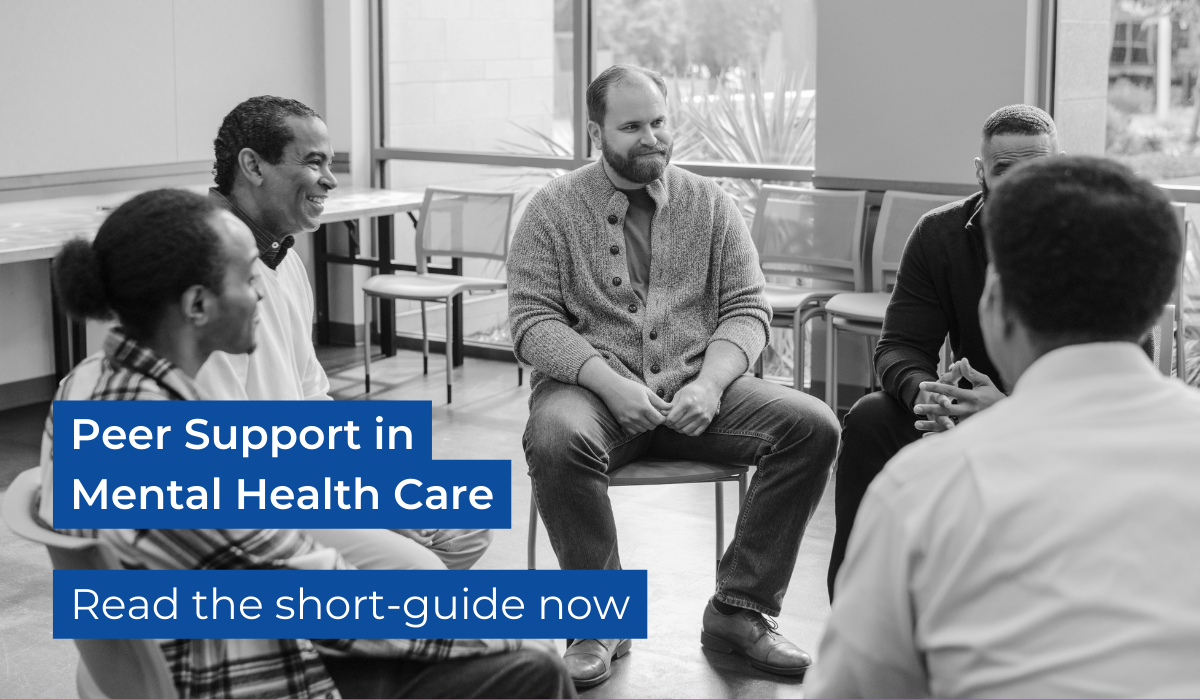Just Published: Short Guide on Peer Support in Mental Health Care

Intentional Peer Support
“And so I found my voice and what I had to say was respected and valued. And as I found my voice, I was able to build up this sense of hope that people really did want to create change and innovation in mental health services so that the experience I had was no longer the norm. And as this hope grew so did my sense of self-worth and purpose and my recovery from the mental health relapse started”. Alex, UK
This short guide aims to provide the target audience with a better understanding of the role of peer supporters in the recovery journey of people with mental health problems or psychosocial disabilities, to show how peer support is implemented in European countries, reflect on lessons learnt and provide recommendations for transfer of practices across Europe.
Peer support is when people use their own experiences to help each other. Peer support is distinct from other forms of psychosocial support in that the supporter is someone who has been in a similar situation or position and can relate personally to the recovery steps that someone else wants to take. In peer support, everyone’s views and experiences are equally valued, rather than considering the expertise of one person better or more important than another’s
This short guide focuses on peer support as part of or in partnership with mental health services (intentional peer support), i.e. when mental health services recruit new team members with lived experience of mental health issues who are prepared to share what they have learned on their own recovery journeys and offer practical advice and support in managing daily life.
The publication – in layman language- is targeted to general public, including policymakers and any other stakeholders interested in the topic, especially those thinking of becoming involved in peer support.
The publication has been drafted by the Psychosocial Approach Expert Group and it has been informed by contributions from Mental Health Europe’s members. The voice of experts by experience plays a crucial role in the text.
This guide is the sixth instalment of Mental Health Europe’s series of short guides. The previous publications covered the topics of psychiatric diagnosis, personal recovery in mental health, psychiatric drugs, ending coercion and restraint in mental health services, young people’s mental health.
The short guide is also available in several other languages:
Stay connected
Get our latest news, personal stories, research articles, and job opportunities.

